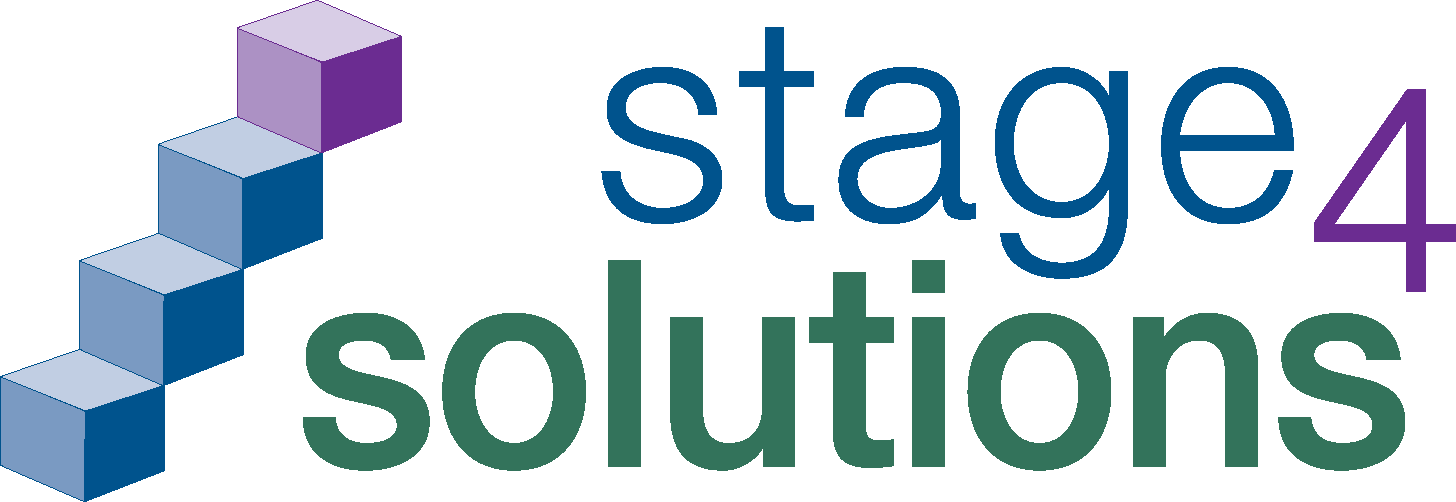Optimizing Candidate Experience During Recruiting
- November 14, 2023
- Posted by: Stage 4 Solutions
- Category: Blog

In the dynamic landscape of talent acquisition, fostering a positive and streamlined candidate experience has emerged as a critical factor in attracting top-tier talent. The initial interaction between a candidate and a prospective employer can significantly shape perceptions and influence decisions. Although many organizations understand the importance of providing a positive candidate experience, data shows that improvement is needed in this area across industries.
According to recent research, a significant majority of candidates (70%), identify a lack of communication during the hiring process as the top concern. Job seekers also consider negative interview experiences (57%), companies evading discussions about pay (55%), and unclear job descriptions (55%) as warning signs. 36% of candidates admit to ghosting employers, attributing their actions to unmet expectations about the company and unsatisfactory interview experiences. Concerns about companies misrepresenting roles persist, with 22% of respondents having worked in roles that didn’t align with the advertised job descriptions.
Furthermore, a concerning 34% of candidates report encountering discriminatory interview questions on aspects such as age (34%), race (28%), gender (24%), marital status (22%), religion (20%), ability status (19%), parental status (18%), national origin (19%), weight (14%), sexuality (13%), pregnancy (13%), and genetic information (12%). Beyond being disrespectful, these questions are legally prohibited and pose a risk of litigation that could significantly harm a company’s reputation and operations. To avoid such discriminatory assumptions, some applicants stated that they resort to name changes on their job applications or resumes to sound less ethnically identifiable, appear younger, or present themselves as a different gender.
It is essential for employers to incorporate best practices into their hiring processes to address such challenges and ensure a positive candidate experience. Key best practices for employers include:
Create Clear Job Descriptions:
A well-defined job description serves as the cornerstone for attracting the right candidates and aligning their skills with organizational needs. Clear requirements and a detailed role description not only provide potential candidates with a comprehensive understanding of the expectations but also streamline the hiring process for both the employer and the applicant. Vague job descriptions can lead to misunderstandings, resulting in mismatches between candidate expectations and organizational needs. By investing time in articulating specific job requirements and outlining the role comprehensively, employers set the stage for a more targeted and efficient recruitment process. This clarity not only enhances the quality of applicants but also contributes to a positive candidate experience, as individuals can make informed decisions about their fit for the role.
Ensure Clear Communication and Demonstrate Respect:
Clear, open, and considerate communication is not just a procedural necessity but a demonstration of respect for the candidate’s time and effort. Providing feedback promptly and navigating the hiring process with transparency reinforces the candidate’s value to the organization acknowledging the individuality of each candidate. Additionally demonstrating respect in the hiring process acts as an indicator of a strong culture.
Improve Interview Experiences as a Dialogue:
Elevating interview experiences to a two-way street is instrumental in fostering a positive and constructive engagement between candidates and hiring managers. To achieve this, it is imperative to equip internal managers with effective interviewing techniques through training. A well-structured and interactive interview not only empowers candidates to showcase their skills and potential but also enables employers to gauge a candidate’s cultural fit and long-term potential within the organization.
Avoid Biases and Discriminatory Practices:
In crafting a fair and inclusive hiring process, it is imperative to actively address and avoid biases at every stage. Recognizing that biases, whether conscious or unconscious, can influence decision-making, organizations need to implement strategies to ensure objectivity. This involves developing standardized interview questions, establishing clear evaluation criteria, and providing comprehensive training for all involved in the hiring process. Training each member of the hiring team on the nuances of bias, unconscious or otherwise, is crucial to fostering an inclusive environment. This training should emphasize the legal and ethical dimensions, making it clear that discriminatory questions related to age, race, gender, marital status, religion, ability status, parental status, national origin, weight, sexuality, pregnancy, and genetic information are strictly prohibited. By embracing these principles, organizations not only reduce the risk of legal consequences but also create a culture where diversity and individuality are celebrated.
Disclose Pay Rate:
Ensuring transparency in pay rates has become an essential aspect of ethical recruitment, with several states mandating disclosure by law. California, Colorado, Connecticut, Maryland, Nevada, New Jersey, New York, Ohio, Rhode Island, and Washington are among the states or jurisdictions within them, that have implemented legislation requiring companies to disclose the pay rate under certain circumstances. Additionally, more states such as Massachusetts, South Carolina, Tennessee and Washington, D.C. have considered pay transparency laws. Organizations should be cognizant of these regulations and incorporate them into their hiring practices, not only to comply with the law but to reinforce a commitment to openness and fairness in all employment opportunities.
Avoid Salary History Questions:
States, or jurisdictions within them, that have salary history bans include Alabama, California (and San Francisco), Colorado, Connecticut, Delaware, Hawaii, Illinois, Maine, Maryland, Massachusetts, Missouri, Nevada, New Jersey, New York State, Ohio (only Toledo and Cincinnati), Oregon, Pennsylvania (Philadelphia only), Rhode Island, Vermont and Washington. Employers should avoid asking questions about candidates’ current or previous salary details to avoid legal consequences. Embracing these changes not only ensures compliance but also fosters an environment that values fair compensation and equal opportunities for all candidates, regardless of their salary history.
The impact of the right hire extends beyond filling an open position as it eventually contributes to the overall success of the organization. It is essential for employers to invest in best practices for recruitment, ensuring that their processes are inclusive, respectful, and designed to identify candidates who not only possess the necessary skills but also align with the company’s values and culture. The ability to attract and retain the right talent is a key factor that can determine an organization’s success in the long run.
Since our founding in 2001, we have served over 125 organizations to address critical resource gaps across marketing, IT, and operations. Our dedication to customer success, values, and fostering positive candidate experiences has been integral to our success, ensuring that every interaction reflects our commitment to inclusivity, transparency, and mutual respect. Please let us know your resourcing needs!

